How to Apply for a Credit Card — and Get Approved

You see a tantalizing offer for a credit card -- maybe with generous travel or cash-back rewards -- so you heed the command to "Apply Now," and then fantasize about the goodies the card will bring you.
But, real talk here: They can always say no.
More than 1 in 5 credit card applicants were turned down in October 2018, according to data from the Federal Reserve Bank of New York. Don't let it happen to you.
Here are the steps to apply for a credit card and get it right the first time. Doing this kind of homework will increase your chances of getting approved.
Find out where you stand financially
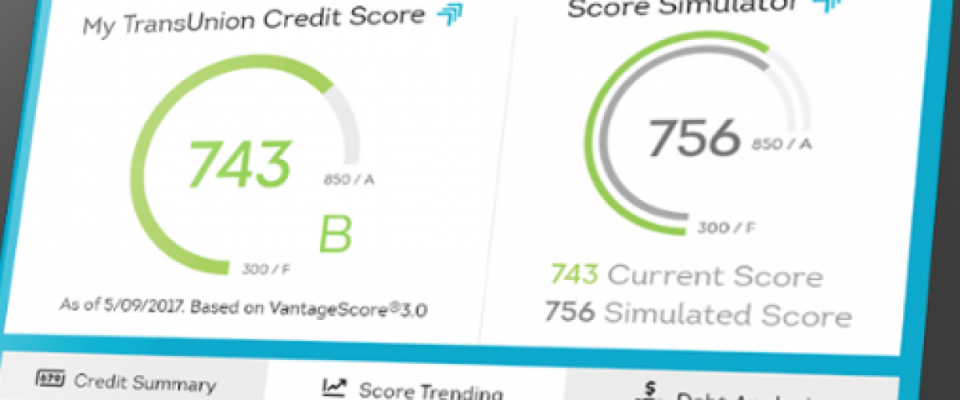
You can request your credit report once a year, for free.
First, request copies of your credit reports from Equifax, Experian and TransUnion, the three major credit bureaus.
Copies are provided for free once a year. There also are numerous other tools you can use to get a free credit report, at any time. The Consumer Financial Protection Bureau (CFPB) has good information on requesting and understanding the reports.
The CFPB website also lists the various entities that can access your reports. That should be all the incentive you need to keep your nose clean, financially.
Comb the reports for errors

Make sure you read your report closely. Companies are very strict when reviewing them.
Inaccurate or outdated reporting can keep you from getting the most favorable terms from lenders and credit card companies.
Mistakes happen. Even a misspelled name could mean that the report contains someone else’s account information. Verify that account numbers match and balances owed are up to date.
File a dispute letter if you spot errors or accounts you don’t recognize. You could be a victim of identity theft.
Know the score
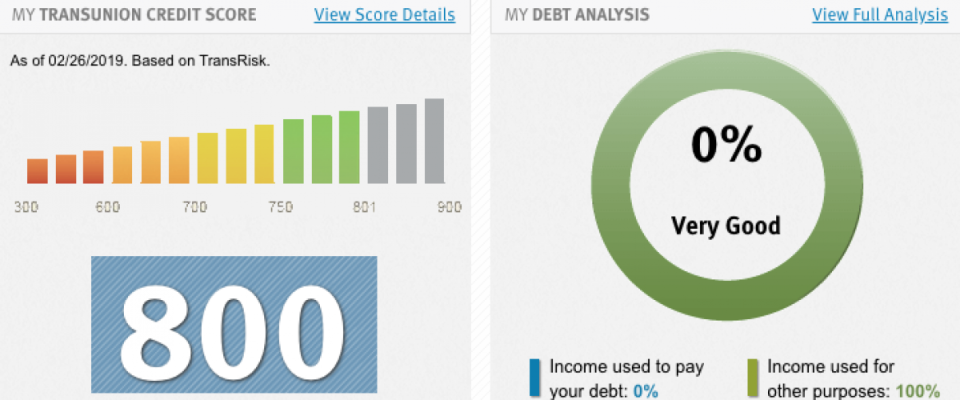
800 or above means you have an excellent score.
You'll also want to get your hands on your credit scores, commonly known as FICO scores. They give lenders a rough idea of the risk involved in extending credit to you.
Credit bureaus use different methods to calculate their three-digit scores. In general, though, ranges are similar to those below:
Poor: 579 or below.
Fair: 580 to 669.
Good: 670 to 739.
Very good: 740 to 799.
Excellent: 800 or above.
Keep following the steps to boost your scores and up your chances of getting approved for a credit card.
Play catch-up

Review your accounts, and regularly pay your bills.
Payment history accounts for 35% of your FICO scores, and every late payment sets you back.
Do all you can to catch up. Pay your bills on time even if you can make only minimum payments in the beginning. Set up payment reminders or automatic payments through your bank.
If you’re lagging on more than one account, focus on the most recently opened one. Older credit problems carry less weight than newer ones. The impact of poor credit management fades with time, so just concentrate on moving forward.
Reduce existing debt

Put all your efforts into reducing debt.
Banks don’t like issuing credit cards to people who already have significant debt.
Not only that, but credit utilization ratio factors heavily into your score even if you always pay on time. The ratio compares the credit you’re using with how much you have available. It’s calculated by dividing balances owed by spending limits.
If you owe $450 on a card with a $1,000 limit, your ratio is 45%. It should be 30% at most.
Put all your efforts into reducing debt. Attack those accounts with the highest interest rates first while paying the minimum on lower-interest accounts.
Don’t rush to close unused accounts
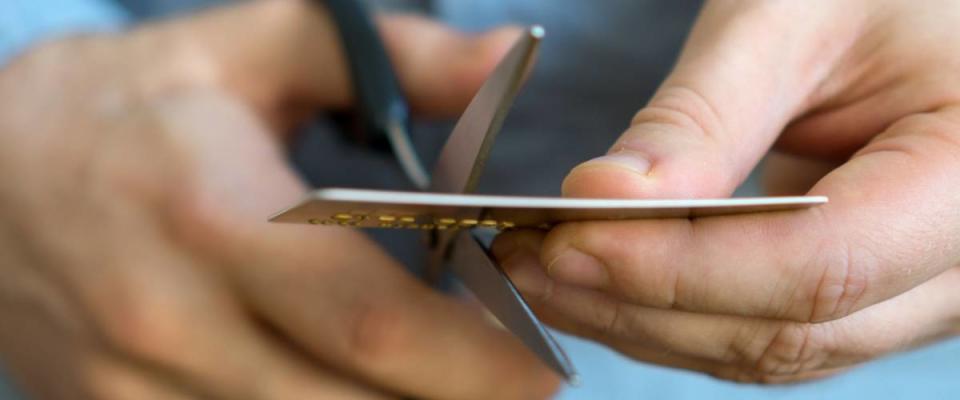
Don't cut the card, your account age matters!
It’s tempting to close an account and do a happy dance when you pay it off, but that’s not necessarily the best strategy.
Length of credit history has bearing on your score. Aging accounts in good standing make you look good.
Let’s say you have a longtime department store card, like Target's REDcard, with zero balance. There’s greater benefit in using the card on occasion, and paying the full balance right away, than cutting up the card and closing the account.
Space out credit card applications
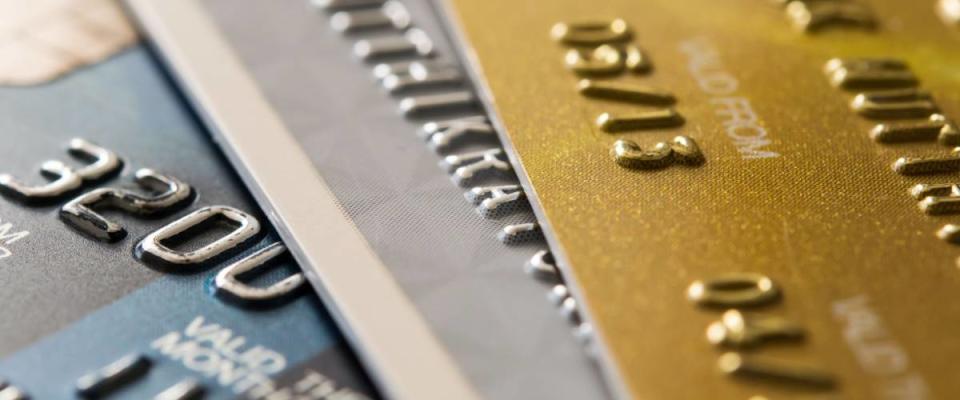
If you apply for more than one card, wait a few months before applying for another.
Don’t apply for several credit cards all at once.
Card issuers request your credit information from the credit reporting agencies when you apply. One inquiry won’t do much damage, but a flurry of requests in a short time makes you look panicky.
It raises red flags that your finances are unstable, and instability hurts your score. If you apply for more than one card, wait a few months before applying for another.
Decide which type of card is best
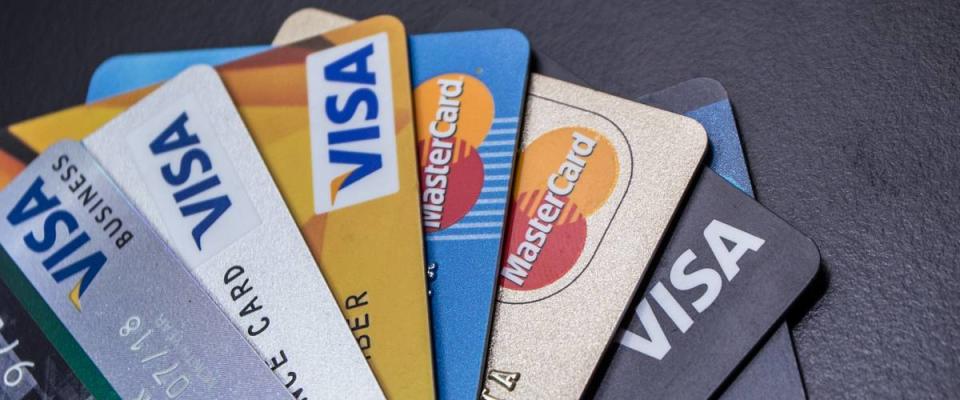
Even between the different providers like Visa and Mastercard, there are huge rewards differences.
There are hundreds of credit cards to consider, but you can save time by finding out upfront if you qualify. Some issuers require a minimum FICO score before they’ll even look at your application.
It helps to understand your goals for getting a card. Are you looking for rewards, or do you just want a no-fee, no-frills card for building a credit history? Are you looking for a card with perks, such as a cash-back credit card, or a travel card, compatible with your lifestyle and spending habits?
Decide what’s most important, so you can focus your search on finding the perfect credit card for you — and improve your odds of getting accepted.
Shop around

Go in and consult financial advisors about the different fees associated with each card.
Compare fees, interest rates, finance charges and introductory offers. For instance, some card issuers offer 0% interest for the first 12 or 18 months.
If you have little or no credit history, you may not be approved for the best offers. That’s all right. Using any card responsibly will raise your credit score over time.
Be sure to weigh annual fees against rewards. It doesn’t make much sense to pay $50 or $100 a year if you barely break even on the rewards.
Read the small print

Always read the fine print.
Recently, the Chase Sapphire Reserve card flashed an incredible sign-up bonus: up to $1,500 worth of travel rewards.
The fine print? If you had applied for and opened five cards in the past 24 months, you would not be approved. The aim was to discourage customers who might chase rewards — and then dump the card shortly after reaping the benefits.
Reading the small print always pays off. You may see a reason not to waste time applying for a particular card, and move on to another instead. Look at each card's APR, foreign transaction fees, etc.
Thanks to the Credit Card Accountability Responsibility and Disclosure (CARD) Act of 2009, agreements are shorter and easier to understand.
The CFPB maintains a database of more than 300 credit card agreements to help you make an informed decision. Just search by the issuer’s name.
Choose your application method

Figure out how to best apply. Sometimes in person makes the process easier, even if it takes longer to sit down with an advisor.
Banks and credit unions issue Mastercards and Visa cards. American Express and Discover directly issue their cards.
The fastest, most convenient way to apply is online through a card issuer’s website. Be sure to use a secure web connection rather than public Wi-Fi.
You also can apply in person or by mail, but the verification process may take longer.
Have your information handy
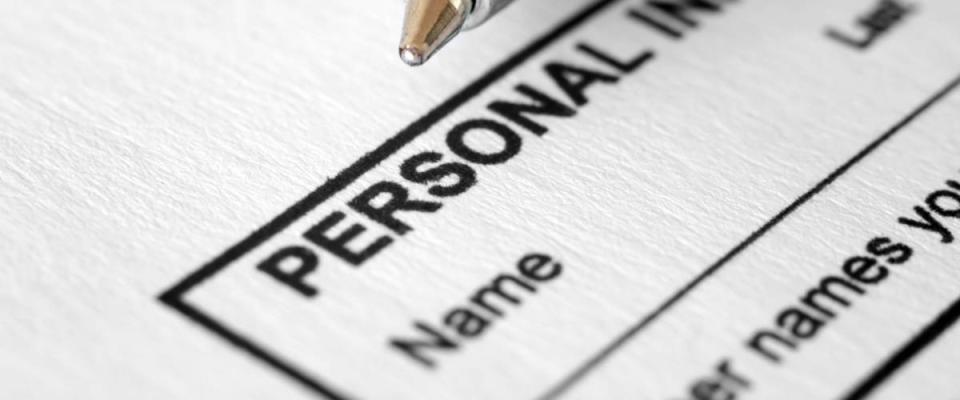
Your answers will help creditors decide whether you can repay what you charge.
You’ll be asked to provide all your personal information such as name, address, phone number, Social Security number and date of birth.
There will be questions about your income, your job, your bank accounts, and your house payment or rent.
Many questions will seem unduly nosy, but your answers will help creditors decide whether you can repay what you charge. The information also determines your interest rate and credit limit.
Depending on how you apply, you could get an answer in less than a minute or within about 10 days.
Keep your chin up if you’re denied

Remember, you can always apply again after building your score.
Being denied credit on the first attempt is not the end of the world.
If your application is rejected, consider getting a secured card. With secured cards, you make a deposit of cash, and your credit limit is equal to your deposit. If you charge things and fail to pay on time, the card issuer can withdraw payments from your deposit.
Pay on time. If the issuer reports to the credit bureaus, and you've never missed a payment, you'll basically be bulletproof. When it comes to building credit, that is.
Meanwhile, keep working to boost that FICO score. You’ll eventually get there.
Join the MoneyWise mailing list! You’ll get the latest financial tips and news, straight to your inbox.

